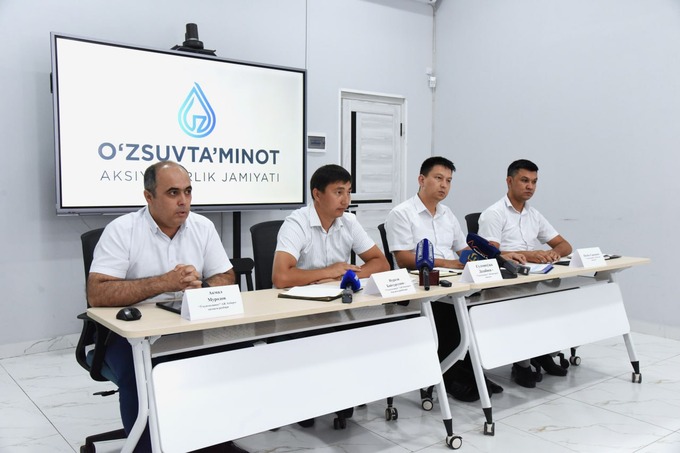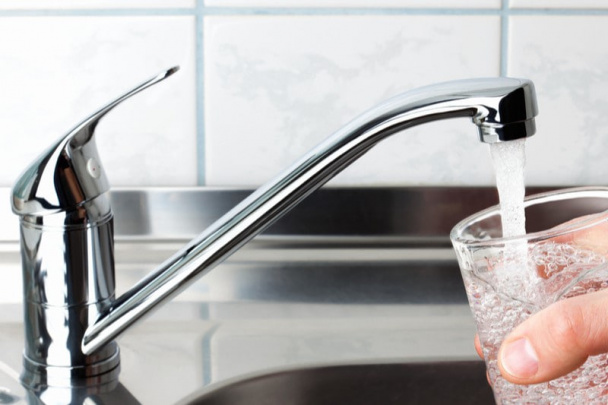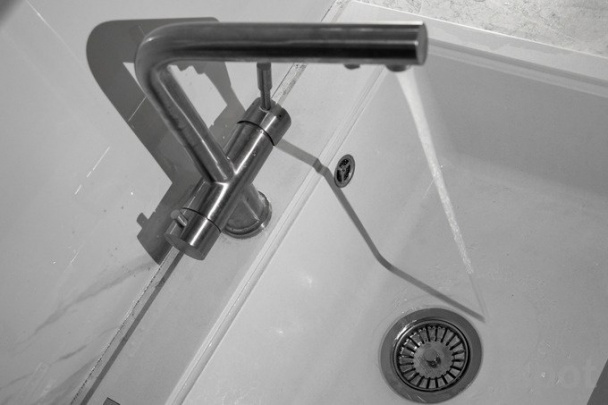Uzbekistan may tie loan approval to payment of water debts
"Uzsuvta’minot" has announced that a proposal is being developed to deny loans to consumers with huge debts for drinking water and sewage services. Nearly 50% of the 5 million households in Uzbekistan have unpaid debts.

Photo: Uzsuvta’minot
The total debt owed by consumers for drinking water and sewage services in Uzbekistan is close to 1 trillion UZS, according to "Uzsuvta’minot".
Despite efforts and explanations to instill payment discipline among the population and to prevent illegal use of drinking water supply networks and sewage services, violations of the law continue to be observed, the JSC said.
According to Sultanhoja Dadaboyev, head of "Uzsuvta’minot," the total debt stands at nearly 1 trillion UZS, with 715.2 billion UZS owed by individuals and almost 250 billion UZS by legal entities. The population's debtor liabilities have decreased by 41.5 billion UZS compared to the beginning of the year. "Out of a total of 5 million consumer households, 2 million 408 thousand, or nearly 50%, have outstanding debts," he said.
Dadaboyev emphasized that in the current year, 22.4 thousand physical and legal consumers across the republic were disconnected from the water supply network due to debt. The highest number of these cases, 12.4 thousand, occurred in Tashkent city.
"In January-June of this year, 7,700 illegal connections to the water supply and sewage systems were detected. The highest rates were observed in Tashkent city (1,400 cases), Fergana region (1,300 cases), and Syrdarya region (1,200 cases). It is estimated that these violations have caused damages exceeding 68 billion UZS to the interests of the joint-stock company. Of this amount, 15 billion UZS have been recovered to date," he said.
According to a representative of the company, during the six months, civil and economic lawsuits were filed with the courts against 117.6 thousand consumers for a total of 343 billion soums to recover unpaid debts for water supply and sewage services.
Shahboz Sarmanov, head of a department at "Uzsuvta’minot," stated that a system is currently being developed to deny loans to consumers with outstanding drinking water debts.
"Currently, the process of integration with credit institutions, i.e., banks, is underway. The proposal being developed is to deny any type of loan to a consumer with outstanding debts for drinking water and sewage services until the debt is cleared. Even if the consumer does not own the house, but is registered at a household with debts in the water supply system, a loan will not be granted. Work is currently being done to implement this procedure. Additionally, there is consideration to link debt recovery from defaulting consumers to gas and electricity systems. This issue will be thoroughly analyzed before a final decision is made," said Sarmanov.







